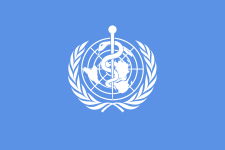“Punting the Pundits” is an Open Thread. It is a selection of editorials and opinions from around the news medium and the internet blogs. The intent is to provide a forum for your reactions and opinions, not just to the opinions presented, but to what ever you find important.
Thanks to ek hornbeck, click on the link and you can access all the past “Punting the Pundits”.
Follow us on Twitter @StarsHollowGzt
Paul Krugman: Oligarchs and Money
Econonerds eagerly await each new edition of the International Monetary Fund’s World Economic Outlook. Never mind the forecasts, what we’re waiting for are the analytical chapters, which are always interesting and even provocative. This latest report is no exception. In particular, Chapter 3 – although billed as an analysis of trends in real (inflation-adjusted) interest rates – in effect makes a compelling case for raising inflation targets above 2 percent, the current norm in advanced countries. [..]
But the I.M.F. evidently doesn’t feel able to say outright what its analysis clearly implies. Instead, the report resorts to euphemisms that preserve deniability: the analysis “could have implications for the appropriate monetary policy framework.”
So what makes the obvious unsayable? In a direct sense, what we’re seeing is the power of conventional wisdom. But conventional wisdom doesn’t come from nowhere, and I’m increasingly convinced that our failure to deal with high unemployment has a lot to do with class interests.
Robert Reich: McCutcheon took us back in time, but it might just birth the next Occupy
The conservative supreme court thinks it can build a gilded age for the era of income inequality. They won’t know what hit ’em
The supreme court is composed of five justices appointed by Republican presidents, and four appointed by Democratic ones. In the McCutcheon v FEC case decided on Wednesday, the five Republican appointees interpreted the first amendment to protect the right of individuals to pour as much as $3.6m into a political party or $800,000 into a political campaign.
The decision by those justices allows individual donors to buy – and federal officeholders to solicit – unparalleled personal influence in Washington. McCutcheon drowns out the voices of ordinary citizens. [..]
The decision rests on the court’s dubious finding that such spending does not give rise to corruption. That’s baloney, as anyone who has the faintest familiarity with contemporary American politics well knows. As Justice Stephen Breyer noted in his dissenting opinion: “where enough money calls the tune, the general public will not be heard”.
Unless, of course, you think spies redacting 6,300 pages of their own sins is transparency. Look how much leaks told us this week
In a seemingly rare win for transparency, headlines blared on Thursday that the Senate Intelligence Committee had voted to declassify key findings of its massive report on CIA torture. Unfortunately, most news articles waited until the final two paragraphs to mention the real news: the public won’t see any of the document for months at minimum, and more than 90% of the investigation – characterized as “the Pentagon Papers of the CIA torture program” – will remain secret indefinitely.
In reality, only the executive summary and its conclusions – 480 out of some 6,300 pages – were even included in the vote, and they’re nowhere close to being published: it now heads to the White House for “declassification review”, an arduous process that will involve multiple government agencies taking a black marker to the documents, including the CIA, the same agency accused in the report of systematically torturing prisoners and lying about it for years. The spy report’s subjects and suspects will now become its censors.
It’s possible the only way the public will ever get to see the entire landmark report is the same way we’ve learned everything we know about it: if someone leaks it.
Kevin Gosztola: The CIA and the ‘Cult of Intelligence’ Will Manage to Keep Vast Majority of Senate Torture Report Secret
Why is it that the public will likely never get to read much of a major investigative report the Senate Select Committee on Intelligence produced on the CIA’s rendition, detention and interrogation program-a program that included torture?
Thursday, the Senate intelligence committee voted to declassify portions of the 6,300-page report-the executive summary, findings and conclusions. It was not long after the vote that it was confirmed that the White House would have the CIA conduct a declassification review of these parts of the report before they were released.
This conflict of interest was addressed by Steven Aftergood of Secrecy News, who told The Guardian the CIA functionally will control “the declassification process, and they have an interest in how they as an agency are portrayed in the final product.” He added, “They’re not an impartial party, and that’s a flaw in the process.”
Yet, what if it is not a flaw? What if it is a feature? The CIA has made it this far in history without facing any accountability whatsoever for torturing and even causing the deaths of captives it confined in a network of secret prisons the agency maintained.
Richard (RJ) EskowL Is Charles Koch Un-American? Let Thomas Jefferson Decide
In a surprisingly self-pitying Wall Street Journal editorial, billionaire Charles Koch has put forward the proposition that the nation’s “collectivists” have unfairly characterized him as “un-American.”
What Koch calls “character assassination,” however, others would describe as a simple recounting of the facts. Koch and his brother David are known for injecting massive amounts of their (partially inherited) wealth into the political process, academia, and propaganda in order to promote their right-wing (and self-serving) point of view.
But now that he’s brought it up: Is Charles Koch really un-American?
I’m not comfortable answering that question myself. It promises to judge the person, rather than the deeds, and is all too reminiscent of the infamous House Un-American Activities Committee. (It’s worth noting that, for a guy who resents being labeled, Koch is certainly quick to label his enemies “collectivists” — a term which is strikingly reminiscent of McCarthyism.)
So let’s turn the question over to an unimpeachable authority: Thomas Jefferson. He seems like an arbitrator all parties can agree upon. Koch even cites Jefferson in his own defense. Unfortunately, all that citation accomplishes is to make it painfully clear that Koch is no Jefferson scholar.
César Chelala: The Case for Donald Rumsfeld’s Prosecution
I have just finished watching the film “The Unknown Known” by Errol Morris, which is a long interview with Donald Rumsfeld, the former Secretary of Defense during the Iraq war, and cannot stop thinking about Rumsfeld’s role in the use of torture, for which he was widely condemned.
In 2009, Manfred Nowak, the U.N. Special Rapporteur on Torture, stated that there was already enough evidence to try former U.S. Defense Secretary Donald Rumsfeld for war crimes. Nowak’s statement confirmed what human rights and legal organizations have been saying for several years, and spotlights one of the Bush administration’s most controversial decisions regarding the use of torture. [..]
Decades ago, Hannah Arendt coined the phrase “the banality of evil” to describe how “normal people”, given the circumstances, could commit atrocious crimes.
The documentary “The Unknown Known,” draws its title from one of Mr. Rumsfeld’s most famous rhetorical pronouncements. In the film, Morris interviews Rumsfeld at length, and allows him to give his version of the facts that led to the Iraq war and subsequent events. Looking at Rumsfeld, totally oblivious and uncaring about the devastation that he and his accomplices unleashed in Iraq, I am tempted to call the process “the impunity of evil.”


 On this day in 1948,
On this day in 1948,  In a move to squash the freedom and local political autonomy of Nashville residents, the Koch Brothers-finded Americans For Prosperity turn out to be supporting a proposed State of Tennessee law outlawing Bus Rapid Transit systems that have dedicated lanes. From
In a move to squash the freedom and local political autonomy of Nashville residents, the Koch Brothers-finded Americans For Prosperity turn out to be supporting a proposed State of Tennessee law outlawing Bus Rapid Transit systems that have dedicated lanes. From
Recent Comments